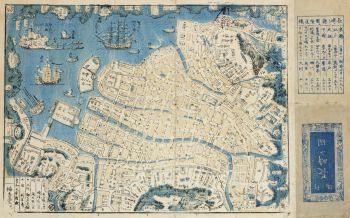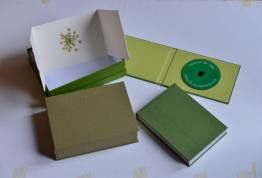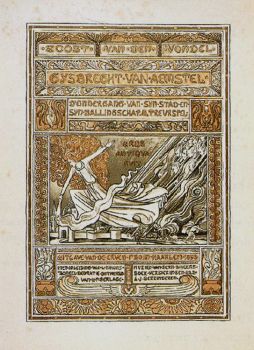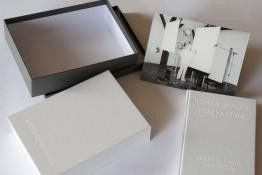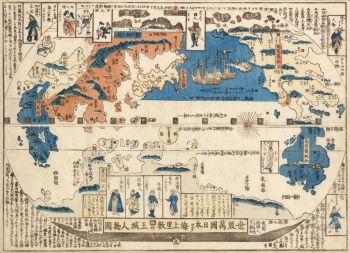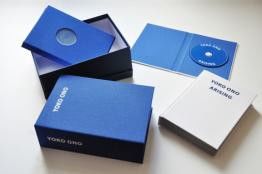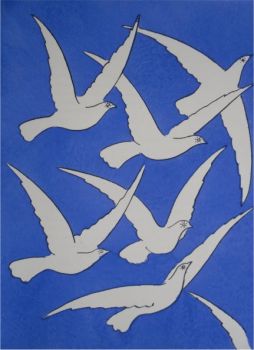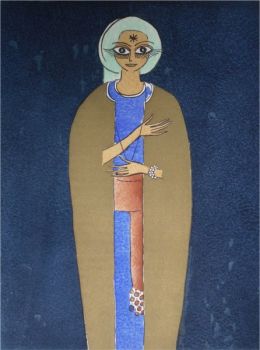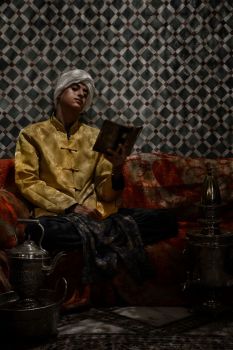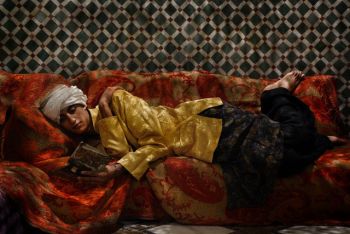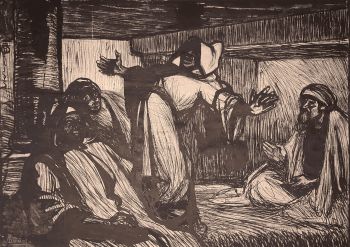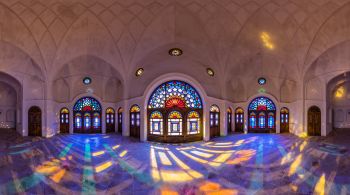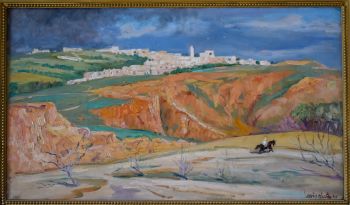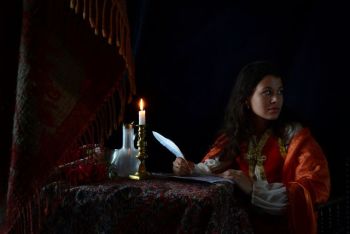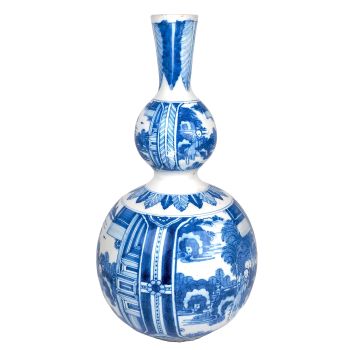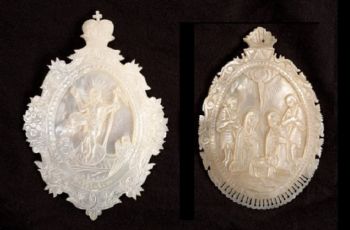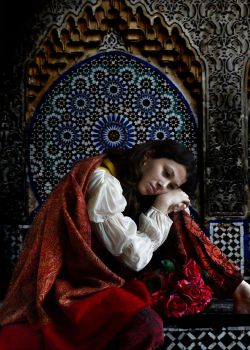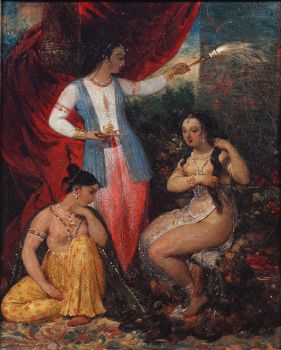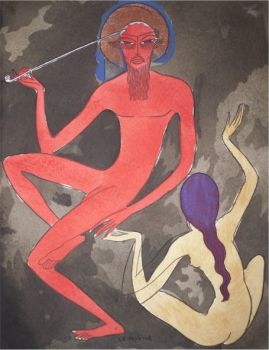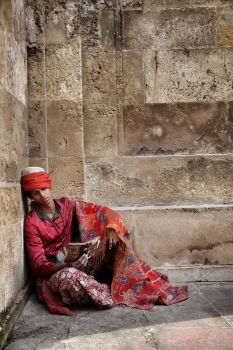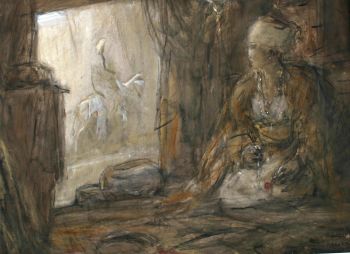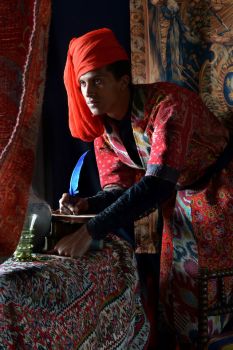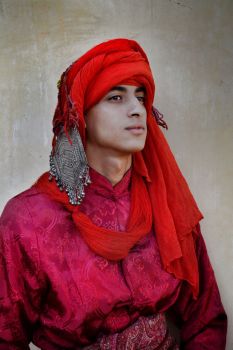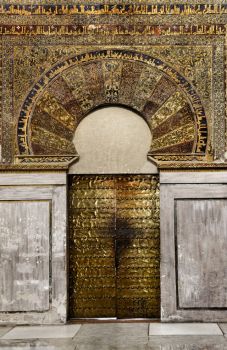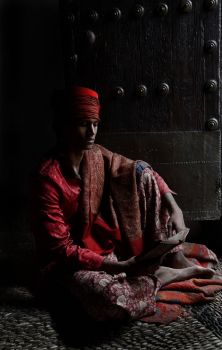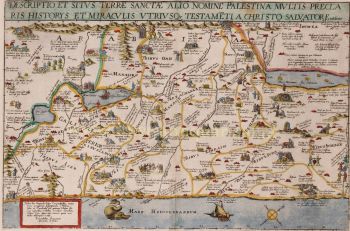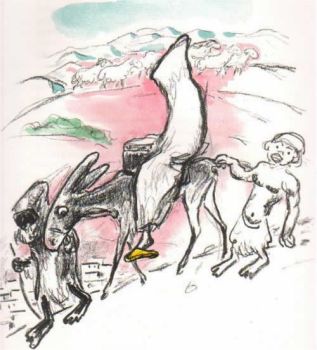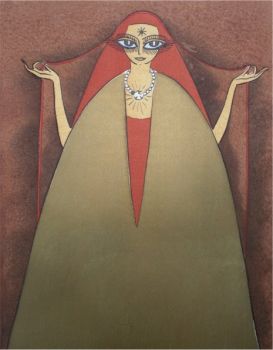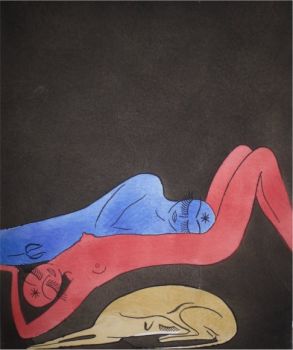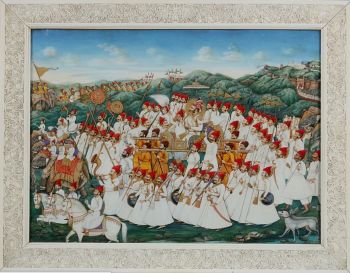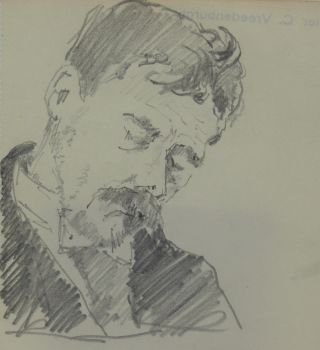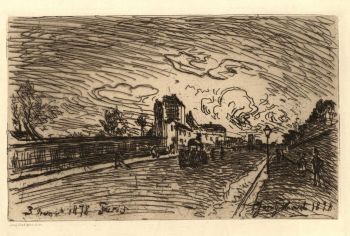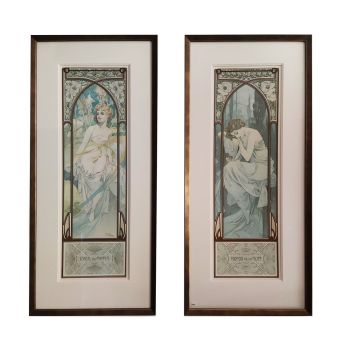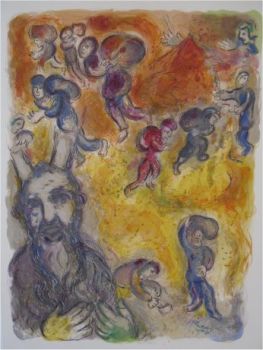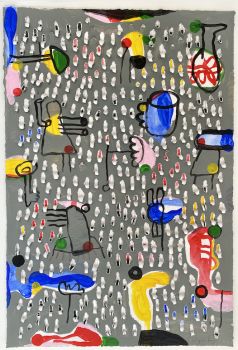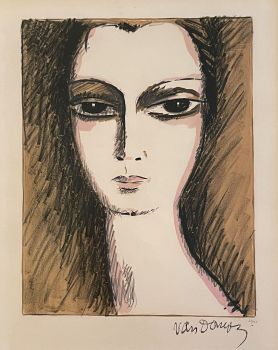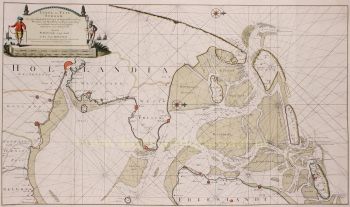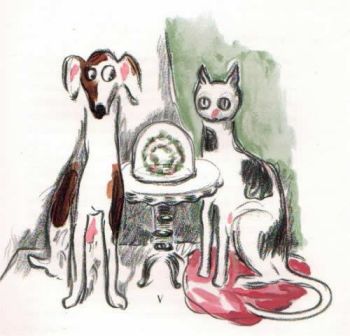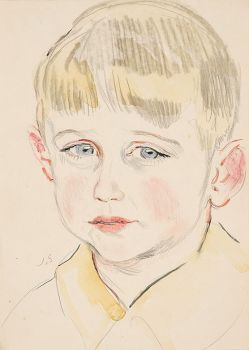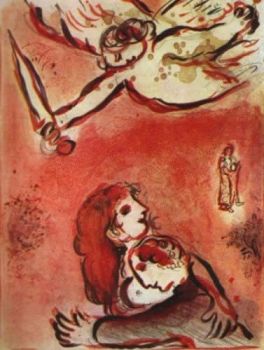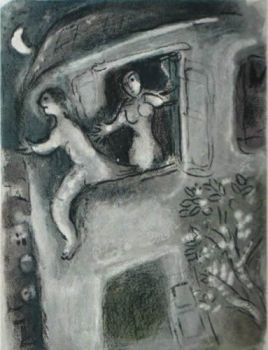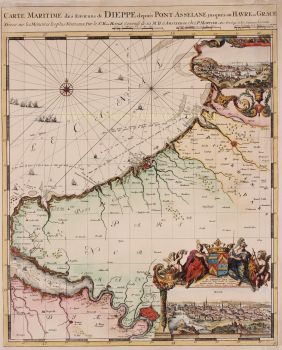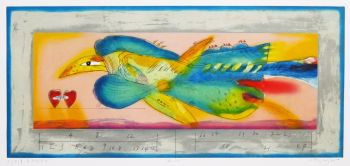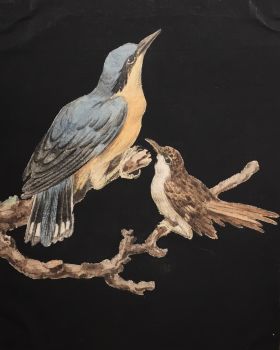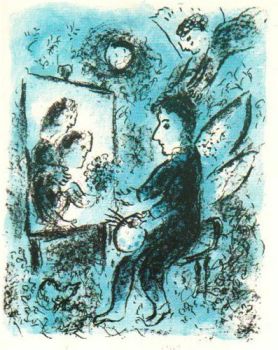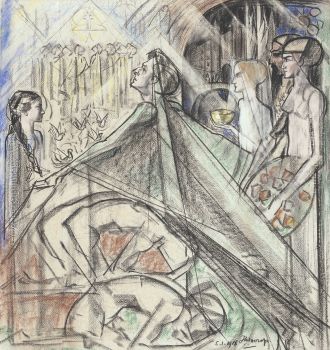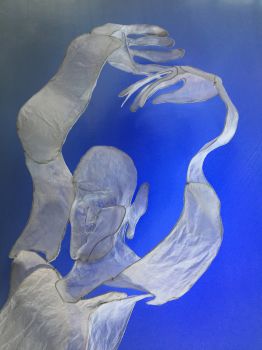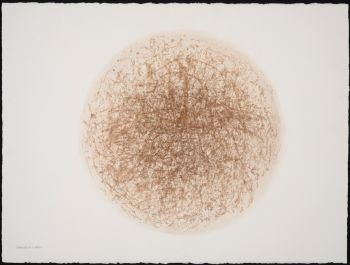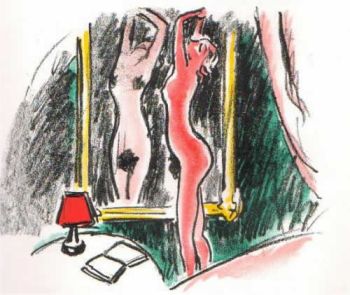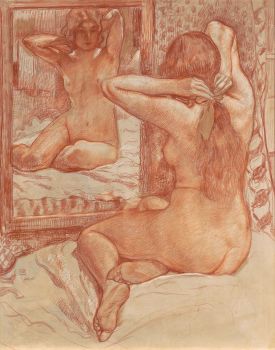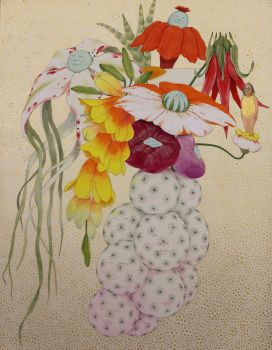782 Arabic proverbs collected before 1817, with explanatory notes 1830
Johann Ludwig Burckhardt
Papier
28 ⨯ 22 cm
Actuellement indisponible via Gallerease
- Sur l'oeuvre d'artArabic proverbs, or the manners and customs of the modern Egyptians, illustrated from their proverbial sayings current at Cairo, translated and explained ...
London, John Murray (colophon: printed by C. Roworth), 1830. Large 4to (28 x 22 cm). With a large folding engraved map of the Sinai, the Holy Land and parts of Egypt and Syria, showing Burckhardt's travels, and a few small woodcut illustrations in the text. Set in roman and italic type with the proverbs also in the original Arabic. Mid-19th-century half tan calf, spine with gold-tooled bands.
First edition of a ground-breaking trove of 782 Arabic proverbs, published here in the original Arabic with English translations and (sometimes extensive) explanations of their meaning. Burckhardt took some from a collection assembled by the Egyptian scholar Shered ad-Din Ibn Assad, adding others "as he heard them quoted in general society or in the bázár ... Several Scriptural sayings and maxims of ancient sages will be found here naturalized among Arabs; as well as some Proverbs which have generally been supposed of European origin" (preface). This makes the present publication an essential primary source for Islamic, Egyptian and Arabic oral history, preserving popular proverbs collected before 1817.
The Swiss explorer, orientalist and archaeologist Burckhardt (1784-1817) travelled through Syria, Jordan, Egypt, Nubia and the Arabian Peninsula, and rediscovered the ancient city of Petra. Disguised as an Arab, he crossed the Red Sea to Jeddah under the name "Sheikh Ibrahim", passed an examination in Muslim law and participated in a pilgrimage to Mecca and Medina.
With bookplate. Endpapers browned, slightly affecting the title-page, last page and folding map, but otherwise in very good condition. Binding somewhat worn and scuffed, but structurally sound. An expert Arabist's annotated collection of Arabic sayings, giving insights into Arabic culture.
Gay 1963; Howgego, 1800-1850, B76. - Sur l'artisteJohann Ludwig Burckhardt, également appelé Ibrāhīm Ibn ʿabd Allāh (né le 24 novembre 1784 à Lausanne, en Suisse - décédé le 15 octobre 1817 au Caire, en Égypte) était un voyageur, géographe et orientaliste suisse. Il est surtout connu pour avoir redécouvert les ruines de l'ancienne ville de Petra en Jordanie. Burckhardt est allé en Angleterre en 1806. Il a étudié l'arabe, les sciences et la médecine à l'Université de Cambridge à Londres. En 1809, il quitta l'Angleterre et se rendit à Alep en Syrie pour perfectionner ses coutumes arabes et musulmanes. Ensuite, il a fait un voyage dans les régions au sud du Sahara, via le Fezzan, maintenant le secteur sud-ouest de la Libye. Lorsqu'il était sur le chemin de la Syrie au Caire en 1812, il découvrit l'important site archéologique de Petra, dans la Jordanie moderne. Au Caire, il ne trouva aucune caravane fiable au Fezzan; c'est pourquoi il décida de remonter le Nil. Ce faisant, il découvrit l'imposant temple rocheux d'Abou Simbel. Puis il a voyagé à travers l'Arabie, visitant la Mecque. Il est retourné au Caire où il est mort, attendant toujours une chance de traverser le Sahara.
Artwork details
Related artworks
Engelbert Kaempfer
LIVRE ENGELBERT KAEMPFER1651 - 1716
Prix sur demandeZebregs & Röell - Fine Art - Antiques
Antonie Derkinderen
Memory book Exhibition of Dutch Painting1892
Prix sur demandeKunsthandel Pygmalion
Tilmanus Nicolaus Maastricht
Missale Romanum avec montures en argent hollandais1788 - 1792
Prix sur demandeJacob J. Roosjen SRI
Tilmanus Nicolaus Maastricht
Missale Romanum avec montures en argent hollandais1788 - 1792
Prix sur demandeJacob J. Roosjen SRI
Engelbert Kaempfer
LIVRE ENGELBERT KAEMPFER1651 - 1716
Prix sur demandeZebregs & Röell - Fine Art - Antiques
Hermann Nitsch
"UNDER MY SKIN" Signed book incl. small artwork and DVD in a matching box2010 - 2014
Prix sur demandeGallerease Selected
LAWRENCE WEINER
"SKIMMING THE WATER [MENAGE A QUATRE]" Signed book plus small artwork2010 - 2014
Prix sur demandeGallerease Selected
Yoko Ono
YOKO ONO: "ARISING" SIGNED BOOK PLUS SMALL ARTWORK 2010 - 2014
Prix sur demandeGallerease Selected
Antonie Derkinderen
Memory book Exhibition of Dutch Painting1892
Prix sur demandeKunsthandel Pygmalion
1 - 4 / 22Artiste Inconnu
GRANDE PEINTURE INDIENNE IMPORTANTE ET RARE `` STYLE D'ENTREPRISE '' SUR IVOIRE REPRÉSENTANT UN DÉFI1850 - 1900
Prix sur demandeZebregs & Röell - Fine Art - Antiques
 Sélectionné par
Sélectionné parDanny Bree
1 - 4 / 24- 1 - 4 / 24

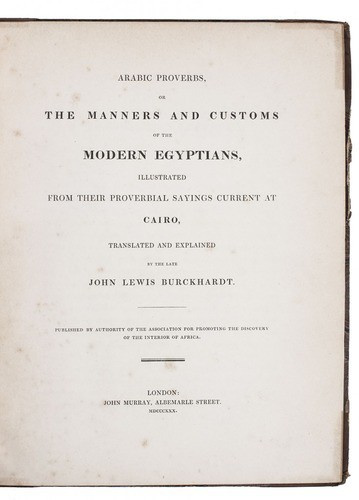



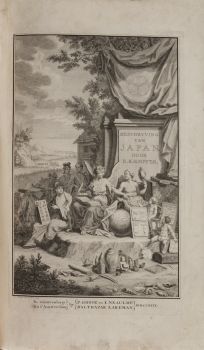
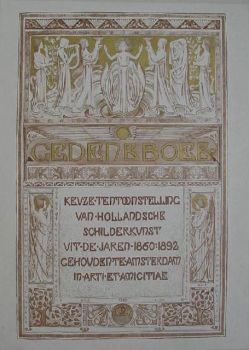
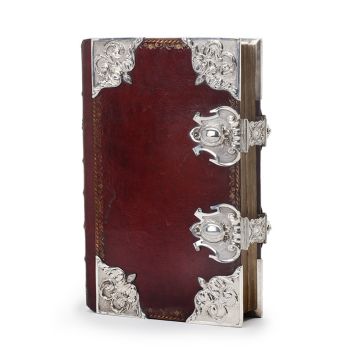
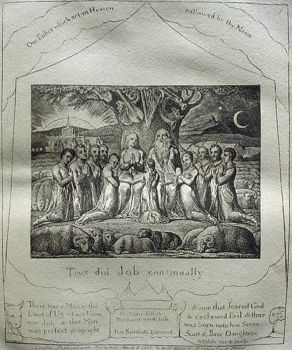
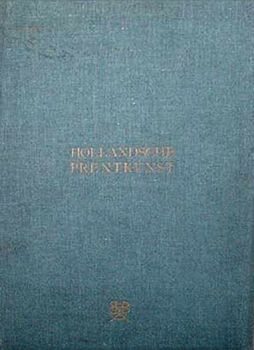
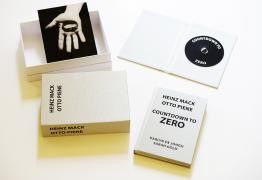
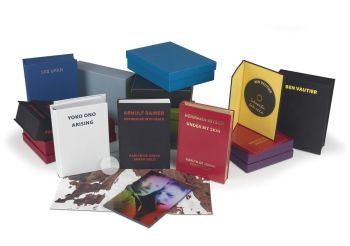
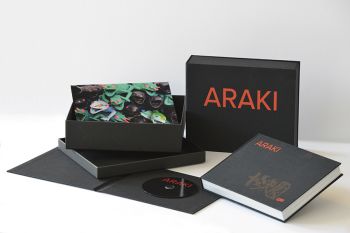
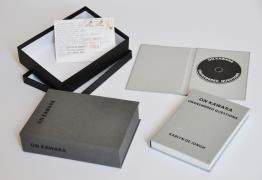
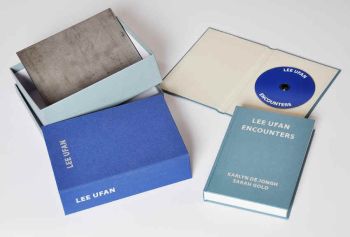
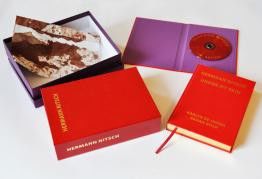
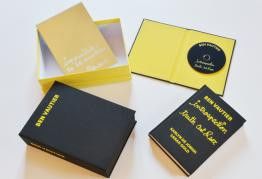
!["SKIMMING THE WATER [MENAGE A QUATRE]" Signed book plus small artwork by LAWRENCE WEINER](https://media-2.gallerease.com/images/442bfd5f-fc31-4e18-a2fa-ee0c08eade64/350x350/skimming-the-water-menage-a-quatre-signed-book-plus-small-artwork.jpg)
